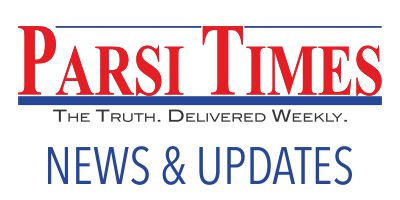The Writ Petition hearing filed by key petitioner Jamshed Sukhadwalla and others against Mumbai Metro Rail Corporation Limited (MMRCL), The Union of India and others, drew to a close with its final hearing on 8th October, 2018, at the Bombay High Court, in a room filled with over a hundred concerned community members. The hearing commenced at 3:00 pm, presided by Acting Chief Justice Naresh Patil and Justice RG Ketkar, with Sr. Counsel on behalf of the petitioners, Navroze Seervai, reading and analysing numerous paragraphs of the recent landmark Sabarimala Judgement pronounced by the five Judge Bench of the Supreme Court of India, and perused several points on the essential practice of religion, with relevance to our case. “The prayer of the Zoroastrian community to re-align the Metro line by 4.5mtrs is not violating the rights of the people, in fact both the rights ought to be balanced,” stated Seervai, adding that with reference to the current case, ‘affidavits’ serve as evidence, since ours is a Writ petition.
After Seervai spoke for nearly an hour, Sr. Counsel on behalf of MMRCL, Shrihari Aney argued that beliefs are to be based on reason and constitutional morality, and that the same needs to be proven through authentic original scriptures and not through newspaper cuttings and articles. In his view, the Petitioners had failed to prove that the karshas (spiritual boundary / fortification) which extend into the very core of the earth, establishes a protective consecrated area, not just around the sacred fire, but also the entire premises of the two Atash Behrams; and that, if a tunnel is dug or Metro Line 3 is operated under the premises of the two Atash Behrams, the spiritual circuits would be breached and negative forces, unleashed.
Further, Aney argued that if necessary, the Atash Behram could be re-consecrated, causing the entire Parsi congregation in attendance at the court room, to unanimously oppose with a loud, resounding, “No!”
Stepping up on behalf of the Trustees of the two Atash Behrams, Senior Counsel Fredun DeVetri pointed out that initially there were 21 nasks (books outlining original Zoroastrian scriptures) but most were destroyed over time, and only one survived – The ‘Avesta’ – which clearly mentions about the karshas and holds enough evidence to prove the Zoroastrian’s belief in the fire and its connection with the earth’s core.
DeVitre requested the Court that the eight alternate proposals put forth by the Italian expert, Nicola Della Valle, for re-alignment of the project be brought on record along with the general consultant’s report provided by the MMRCL. He affirmed that the in-depth detailing of the plan will be provided, in keeping with the structural and safety aspects of the work, once MMRCL accepts to consider at least one plan. Aney was vehemently opposed to bringing the eight alternate proposals on record, stating that these plans could be brought on record only by instituting a fresh Petition, as the current Petition was limited to solely the issue of the violation of fundamental rights.
The date of the verdict is due to be declared soon.
- BJBSL’s All-Parsis Rink Football Tourney - 8 December2018
- ‘Save The Atash Behrams’ V/s MMRCL Final Hearing Concludes - 13 October2018
- Volunteers Revamp Banaji Atash Behram - 22 September2018
